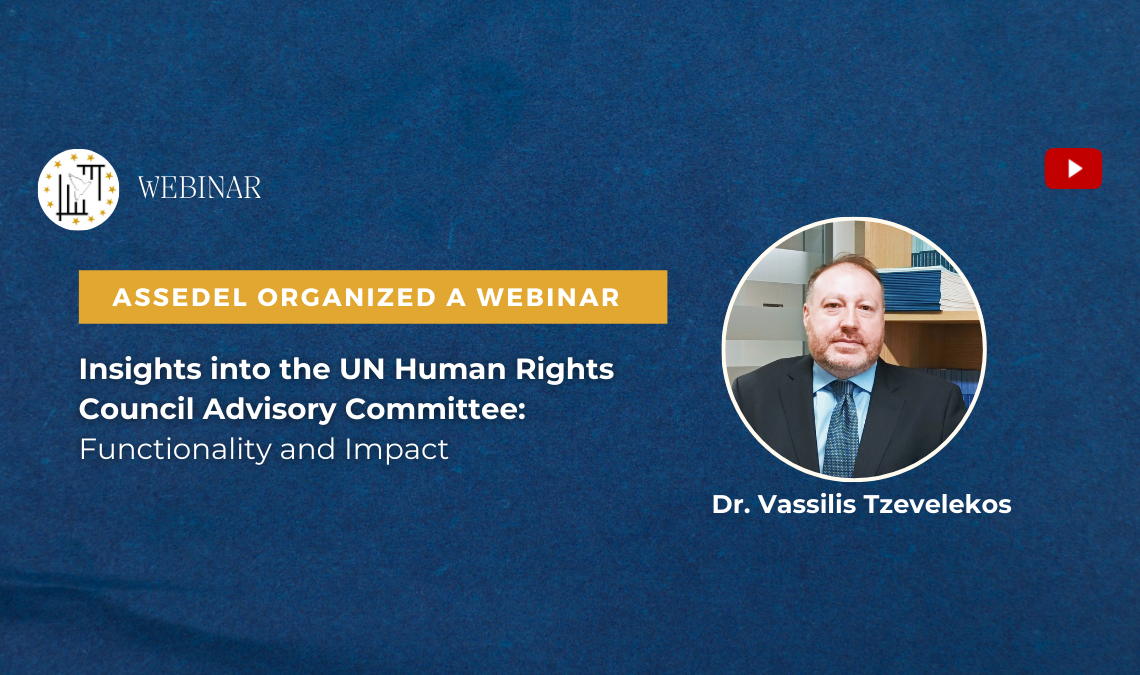On July 24, 2024, ASSEDEL had the pleasure to broadcast live a webinar dedicated to the “Insights into the UN Human Rights Council Advisory Committee: Functionality and Impact”. Our guest was Dr. Vassilis Tzevelekos, Vice-Chairperson of the United Nations Human Rights Council Advisory Committee and a member of the Council of Europe’s CPT. The discussion focused on the Human Rights Council Advisory Committee, covering its key functions, interactions with other UN bodies and external organizations, recent achievements or significant contributions and major challenges. In addition, the involvement of young professionals and academics in human rights advocacy at an international level was analyzed as well as the ways global public and civil society organizations engage with and support the work of the Advisory Committee. Dr. Vassilis Tzevelekos, kindly shared his personal experience, advice, and observations on the topics at hand. An emphasis was put on the Advisory Committee’s spirit of cooperation in terms of serving better human rights.
It was pointed out that unaccompanied minors, terrorism, hostage taking, corruption and the human right to peace are among the main priorities of consideration. The Committee’s expertise is strengthened by a constant up-to-date information exchange, which allows for reasonable action taking. An example of where this is relevant is the concept of fighting climate change via carbon capturing. Such technologies are a product of the constantly evolving innovation but pose the question of whether any harm could be caused to human rights if there is a malfunction of these same technical mechanisms. Furthermore, Dr. Vassilis Tzevelekos explained how the Committee looks into other relevant topics of all kinds, including AI in the military domain, plastic pollution and technically facilitated gender-based violence as threats to enjoyment of human rights. Two main takeaways for the young generations are that learning happens by doing and the ability to convince others as well as the effective allocation of resources, since these are always limited. Dr. Tzevelekos appreciated this webinar for the opportunity to raise awareness and positively impact the Committee’s visibility. Other civil society organizations are encouraged to do the same.


